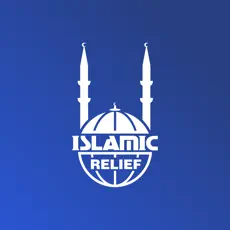Islamic Relief USA (IRUSA) performs disaster relief and sustainable development work domestically and internationally, including in Ethiopia. Drawing inspiration from the Islamic faith, IRUSA works with partner agencies to advocate for a more equitable society. Among others, its campaigns target issues such as gender-based violence and war and conflict.
Islamic Relief USA has maintained a presence in Ethiopia since 2004, providing interventions such as food aid, orphan care, and projects to empower women. In 2020, IRUSA was among the first humanitarian organizations to offer support for Ethiopian refugees in Sudan following the outbreak of a civil conflict between loyal government forces and the Tigray People’s Liberation Front.
Here’s a look at some of the most pressing issues in Ethiopia and what IRUSA is doing to help address those problems and empower Ethiopian citizens.
Food Insecurity
Numerous factors are contributing to growing food insecurity in Ethiopia, which underwent its worst drought in four decades in 2022. According to the United Nations, more than 20 million people in the country experienced food insecurity in 2022 due in part to six consecutive failed rainy seasons, conflict in northern Ethiopia, locust invasion, severe weather events, and inflation. The war in Ukraine has also caused a spike in food prices globally and impacted the availability of wheat in Ethiopia. Wheat is a staple food in the country, which imports most of its wheat from Ukraine and Russia.
One in six of Ethiopia’s 120 million people require food aid. Food insecurity is especially dire in the Tigray region due to war and drought in recent years. The United Nations World Food Programme and US Agency for International Development suspended food-assistance operations in the region in June 2023 to investigate reports of Ethiopian government officials diverting supplies.
Islamic Relief USA is one of many international organizations working to address food insecurity in Ethiopia. IRUSA supported more than 375,000 people in Ethiopia in 2022 and gave food supplies to more than 66,000 people, but more assistance is needed. According to the International Rescue Committee, Ethiopia needs $1.66 billion to overcome drought-related food shortages, but had only received about 42% of that total by the end of 2022.
Water and Sanitation Barriers
Drought and conflict have also exacerbated other critical humanitarian issues in Ethiopia, including access to water, hygiene, and sanitation services. By the end of 2022, less than 30% of people in drought-affected areas received the required assistance. About half of the country’s population didn’t have adequate access to drinking water. Moreover, about 22 million people were still practicing open defecation due to the limited sanitation infrastructure.
With the help of donors, IRUSA provided hygeine and sanitation support to more than 134,000 Ethiopians in 2022 by building sanitary facilities and distributing hygiene kits. Meanwhile, the World Bank’s International Development Association has instituted three projects worth hundreds of millions of dollars to further address water and hygiene issues in Ethiopia.
Offsets to Economic Growth
These humanitarian issues have decreased the positive impacts of Ethiopia’s economic growth during the 21st century. Ethiopia is among the fastest-growing economies in Africa. The country grew at an estimated annual rate of 7.2 % in fiscal year 2022-23. Its economy averaged nearly a 10% growth overall during the last 15 years, which is among the highest rates globally. However, Ethiopia remained among the poorest African nations as of 2022-23, with a $1,020 per capita gross national income.
Local drought has also impacted employment, as about 70% of the country’s population works in agriculture.
IRUSA launched Economic Empowerment for Vulnerable Communities in Ethiopia in January 2021. The three-year project, which concluded in April 2024, focused on empowering youth and women through financial assistance and entrepreneurial support toward pursuing their chosen trade and creating their own businesses. Program participants received business training in areas such as marketing and bookkeeping, as well as opportunities to connect with microfinancing institutions and local markets.
Broad Climate Change Consequences
From drought and failing crops to poverty and decreased employment rates, many of Ethiopia’s economic and humanitarian issues are directly linked to climate change. Multi-year drought conditions across Ethiopia due to rising global temperatures have left many families in pastoralist communities without the crops necessary to support their families, feed livestock, and maintain homes. Another increasingly extreme weather event causing widespread asset loss within these communities is flash floods. As pastoralist communities abandon their traditional livelihoods as a result, many who migrate to urban areas live in poverty.
In addition to projects like livelihood programming and solar pump installations, IRUSA’s work in Ethiopia includes supporting endeavors that facilitate sustainable solutions and broad collaboration. One such project involved administering trainings to build climate change advocacy across the country. The project provides local offices with advocacy and campaigning toolkits for connecting and collaborating with national partner organizations in improving climate adaptation.
These engagements are much needed in Ethiopia, where most government policy responses to issues in pastoralist communities focus on social welfare. Whereas this provides only temporary relief, IRUSA’s project targets climate change as a root cause. It aims to unite community representatives, key government ministries, academics, CBOs, and local NGOs toward the development of community mobilization initiatives that enhance local climate adaptation.
IRUSA Project Spotlight in Ethiopia
In addition to food, sanitation, and hygiene aid, IRUSA provided people in Ethiopia with access to healthcare, orphan care, and emergency funding following natural disasters in 2022. It also offered similar support to people affected by drought in the neighboring nations of Somalia and Kenya.
To support IRUSA’s relief efforts in Ethiopia, visit IRUSA.org/Ethiopia.
